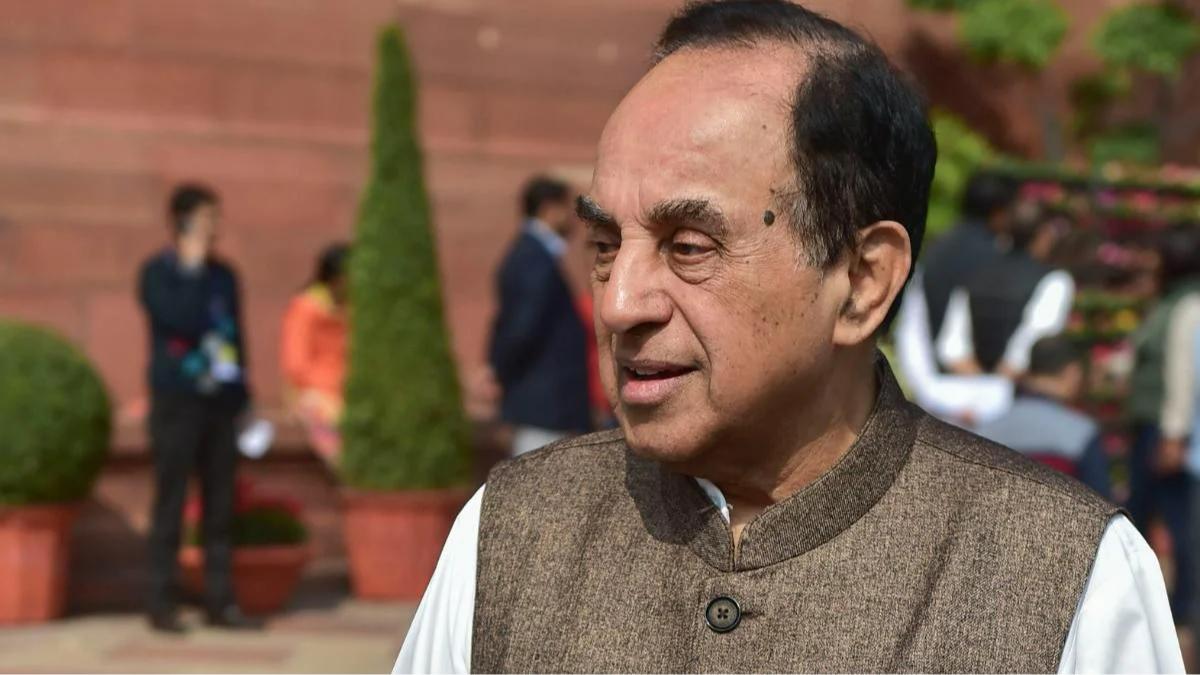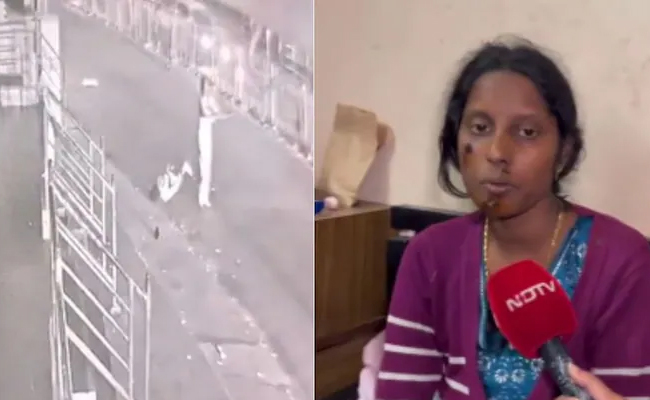New Delhi: In yet another bombshell revelation, BJP leader Dr. Subramanian Swamy has stirred controversy by claiming that Sanjay Gandhi, the son of former Prime Minister Indira Gandhi, did not die in a natural accident, but was allegedly killed by Russia. Swamy made these explosive remarks during a candid interview on the podcast Unplugged Shubhankar, hosted by former Aaj Tak anchor Shubhankar Mishra.
Swamy, known for his outspoken nature and often controversial opinions, shared his theory while recounting his friendship with Rajiv Gandhi, Sanjay’s younger brother, who later succeeded him in politics after Sanjay’s untimely death in 1980.
During the podcast, Swamy alleged that Sanjay Gandhi’s death in a plane crash was not an accident, as widely believed, but a deliberate act orchestrated by Russia. He explained that Russia viewed Sanjay as a threat due to his inclination to bring India closer to the United States. Swamy stated, “Russia killed him. They feared he would take India to America. There is a lot of proof for that.”
ALSO READ: Subramanian Swamy makes explosive claims about former PM Vajpayee’s personal life in podcast
He further revealed that he had spoken to Indira Gandhi about his suspicions at the time, but according to Swamy, she responded with a resigned acceptance, saying, “What is the use? He will not come back.” The implication, according to Swamy, was that even though Indira Gandhi may have suspected foul play, she believed that there was no point in pursuing the matter further.
Sanjay Gandhi’s death had long been considered a tragic accident, with the young leader's plane crashing shortly after takeoff during a routine flight over New Delhi. However, Swamy’s claims about foreign interference are likely to ignite new debates about the circumstances surrounding his death.
The veteran politician also shared anecdotes about his close friendship with Rajiv Gandhi, narrating how they would often discuss important political matters late at night. Swamy recalled how Rajiv sought his guidance on issues such as Article 370, and even expressed a desire to speak against it, only to be persuaded otherwise by his mother, Indira Gandhi.
Swamy also revealed how he had a role in the fall of VP Singh’s government, claiming that Rajiv Gandhi had asked for his help in toppling the administration. According to Swamy, he advised Rajiv that Chandrashekhar, another prominent politician at the time, would be a better alternative to VP Singh. The plan, as described by Swamy, eventually led to Chandrashekhar’s brief tenure as Prime Minister.
Swamy’s podcast remarks are sure to raise eyebrows, particularly his assertion that Sanjay Gandhi’s death was not an accident but the result of international political intrigue. While there has been no concrete evidence to support such a claim, Swamy's reputation for making bold, headline-grabbing statements guarantees that this revelation will spark intense discussion in political circles.
As the podcast gains traction, these allegations are likely to reignite interest in the mysterious circumstances of Sanjay Gandhi’s death.
Let the Truth be known. If you read VB and like VB, please be a VB Supporter and Help us deliver the Truth to one and all.
Mumbai (PTI): Neeraj Ghaywan's much acclaimed "Homebound" is among the 15 films shortlisted in the best international feature category at the Oscars, moving a step close to the final five nominations and maybe a win.
The movie, inspired by a true story that became the basis of a news article during the pandemic, has been creating a global buzz since its debut in the Un Certain Regard category at the Cannes Film Festival this May.
Hollywood legend Martin Scorsese is a fan and has come onboard as an executive producer ahead of the award season.
Produced by Karan Johar and Adar Poonawalla, and starring Ishaan Khatter, Vishal Jethwa and Janhvi Kapoor, "Homebound" is Ghaywan's second movie after "Masaan".
"Homebound" will compete for an Oscar nomination alongside Argentina's “Belén”, Brazil's “The Secret Agent”, French drama "It Was Just an Accident”, Germany's "Sound of Falling” and Iraq's "The President's Cake".
ALSO READ: Actress Shilpa Shetty's restaurant booked for breaching operating hours
The other movies in the shortlist include Japan's “Kokuho”, Jordan's “All That’s Left of You”, Norway's “Sentimental Value”, Palestine's “Palestine 36”, South Korean hit “No Other Choice”, Spain's “Sirat”, "Late Shift" from Switzerland, “Left-Handed Girl”from Taiwan and Tunisian drama “The Voice of Hind Rajab”, the Academy of Motion Picture Arts and Sciences announced in a release on Tuesday.
The award for best foreign film, now re-categorised as best international feature, has so far eluded India.
Only three Indian films have received nominations in the category -- Mehmood Khan’s “Mother India”, Mira Nair’s “Salaam Bombay” and Ashutosh Gowarikar’s “Lagaan”. Deepa Mehta’s “Water”, starring John Abraham and Lisa Ray, also received a nomination but it was submitted from Canada.
Gujarati film "Chhello Show" in 2023 was the last film to get shortlisted.
Costume designer Bhanu Athaiya was the first Indian to get an Oscar, bagging the coveted prize in 1983 for the film "Gandhi". Other than her, A R Rahman, Resul Pukootty and M M Keeravani have also won individual Oscars.
Team "Homebound" celebrated the shortlist news with posts on social media.
"We made the shortlist... Way to go team Homebound'!" Johar shared in Instagram Stories.
In a post, the producer said it was difficult for him to articulate how "proud and elated" he was with the news.
"All of us @dharmamovies are privileged to have this proud and important film in our filmography... thank you @neeraj.ghaywan for making so many dreams of ours come true... from Cannes to being on the Oscar shortlist this has been such an overwhelming journey! Love to the entire cast and crew and teams of this special special film! Upwards and onwards...."
Ghaywan also shared the news on X.
"#Homebound has been shortlisted for Best International Feature Film at the 98th Academy Awards! We are deeply grateful for the extraordinary love and support we've received from around the world," he wrote on X with a special poster of the film.
Jethwa, who plays one of the two friends in the story opposite Ishaan Khatter, said the moment feels "surreal and incredibly humbling".
"To see 'Homebound' being shortlisted and progressing towards the Oscars is something I could have only dreamed of. I am deeply grateful for the love and support the film has received from audiences around the world," he said as he acknowledged Johar, Ghaywan and co-star Khatter and the rest of the team.
Khatter also shared the news on his Instagram stories and wrote, "Oscar ab dur nahi".
ALSO READ: MGNREGA rename: Gandhi made ‘Raghupati Raghav Raja Ram’ national anthem, Kangana sparks row
"Homebound" is inspired by journalist Basharat Peer's The New York Times article “Taking Amrit Home”, also titled "A Friendship, a Pandemic and a Death Beside the Highway".
The film portrays the childhood friendship between a Muslim and Dalit who chase a police job that promises them the dignity they have long been denied due to their surnames.
The Academy on Tuesday also announced shortlists in 11 other categories, including the newly added casting Oscars, animated shorts, cinematography, documentary feature, documentary short, original score and song, sound and visual effects categories.
Nominations for the 98th Academy Awards will be announced on Thursday, January 22, 2026.
Twenty-four categories will be awarded at the 98th Oscars. Each category has five nominees, except for best picture, which has 10.
The 98th Oscars will be held on Sunday, March 15, 2026, at the Dolby Theatre in Los Angeles.





